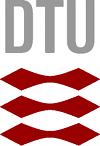| Home | Call for Papers | Program | Local Info | Contact |
 |
 |
 |
 |
 |
| JTRES
2011, York, England JTRES 2010, Prague, Czech Republic JTRES 2009, Madrid, Spain JTRES 2008, Santa Clara, CA JTRES 2007, Vienna, Austria JTRES 2006, Paris, France JTRES 2005, San Diego, CA JTRES 2004, Larnaca, Cyprus JTRES 2003, Catania, Sicily |
The 10th International Workshop on Java Technologies for Real-time and Embedded Systems - JTRES 2012
Technical
University of
Denmark
DTU Informatics
24-26
October 2012
Copenhagen, Denmark

Over 90 percent of all microprocessors are now used for real-time and embedded applications, and the behavior of many of these applications is constrained by the physical world. Higher-level programming languages and middleware are needed to robustly and productively design, implement, compose, integrate, validate, and enforce real-time constraints along with conventional functional requirements and reusable components. It is essential that the production of real-time embedded systems can take advantage of languages, tools, and methods that enable higher software productivity. The Java programming language has become an attractive choice because of its safety, productivity, its relatively low maintenance costs, and the availability of well trained developers.
Although it features good software engineering characteristics, standard Java is unsuitable for developing real-time embedded systems, mainly due to under-specification of thread scheduling and the presence of garbage collection. These problems are addressed by the Real-Time Specification for Java (RTSJ). The intent of this specification is the development of real-time applications by providing several additions such as extending the Java memory model, providing stronger semantics in thread scheduling.
Interest in real-time Java in both the research community and industry has recently increased significantly, because of its challenges and its potential impact on the development of embedded and real-time applications. The goal of the proposed workshop is to gather researchers working on real-time and embedded Java to identify the challenging problem that still need to be solved in order to assure the success of the of real-time Java as a technology, and to report results and experience gained by researchers.
| Home | Call for Papers | Program | Local Info | Contact |